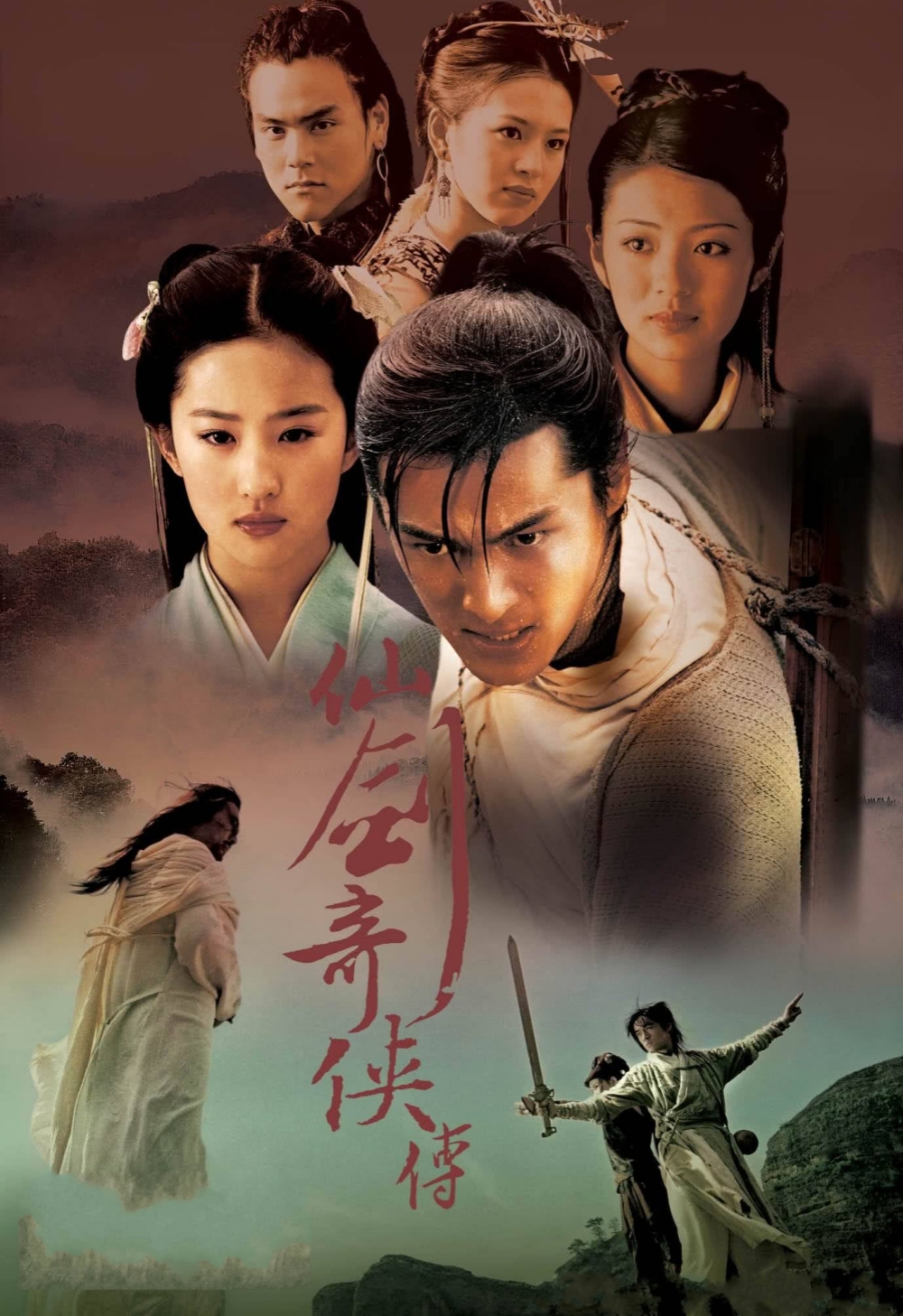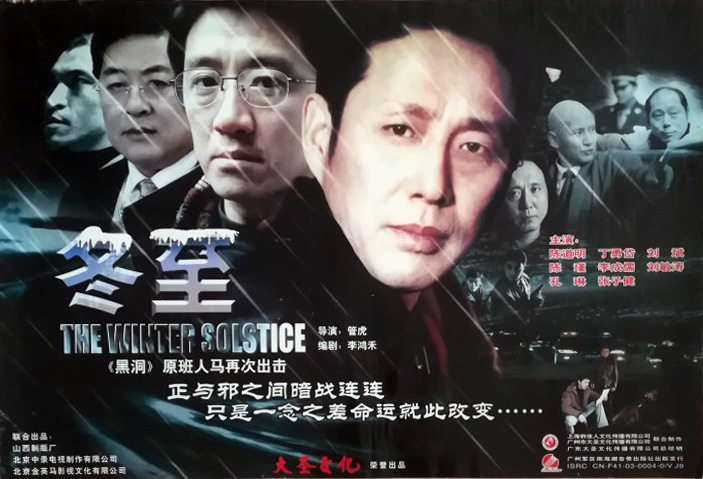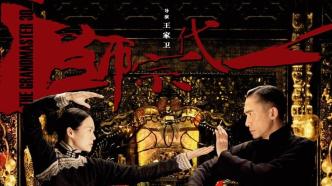
Editor's note: This is a nostalgic theater.
Movies, as art, sometimes re-examined in the long river of time, will have different feelings.
For example, when I first saw this "The Grandmaster" ten years ago, I probably wondered, "What is this?"
When I watch it ten years later, I may feel completely different, and I suddenly realize, "It's probably still a good movie."
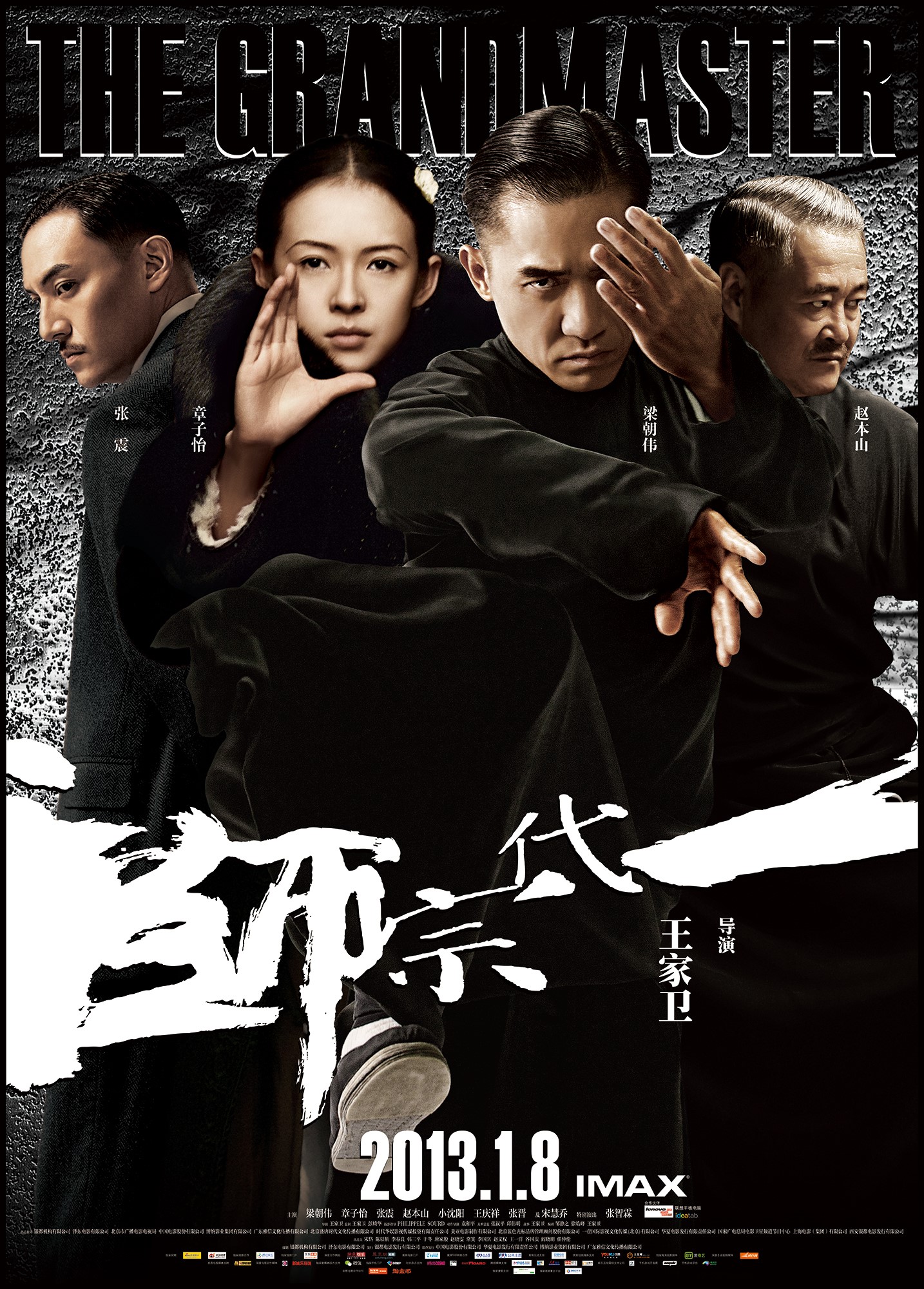
In the version originally released in 2013, even the poster was rushed.
When it comes to the artistic quality of this film, the first thing that cannot be avoided is director Wong Kar Wai's unique authorial temperament and various uniqueness in film production. Just like a top chef, no one can imitate the taste of the dishes, and it is also because of his collection and processing of ingredients, which is very different from ordinary chefs from the source.
The different responses to the films directed by Wong Kar-wai, first of all, stem from Wong Kar-wai's own magic.
If you don’t deliberately deify his artistic achievements and try to describe them objectively, then Wong Kar Wai’s "conferred gods and legends" lies in the fact that he was quickly promoted from an ordinary screenwriter and director in the Hong Kong film industry to the darling of film capital. This kind of promotion is also due to the fact that many top stars believe in his director ability, and are willing to spend several times the time of shooting other movies, and accompany him to make and explore together. "Star" in the film industry represents reliable box office returns and commercial value, and it also makes many investors who understand or do not understand are willing to spend huge sums of money waiting for Director Wong Kar Wai to spend time and energy to complete the film. Even though many times in the end, the commercial return is not too successful, but the film's unique presentation effect is still continuing the magic of the "Wong Kar Wai" brand.
As a film director, the process of chasing artistic effects and dreaming on the screen is endless. James Cameron can spend ten or twenty years pursuing the upgrading of a film's special effects technology. Similarly, Wong Kar-wai can also spend several years polishing and perfecting the production of a film. There is no upper limit to the investment of a movie, one hundred yuan is not too little, and ten billion is not too much. As long as there are investors willing to spend money, the film director can be responsible for spending every penny. At the same time, for those who really understand film production, the money spent can indeed be transformed into real screen effects for the audience to see, rather than the so-called legends of "money laundering borrowed from filming" of many bad films.
The magic of director Wong Kar Wai lies in his ability to find and spend a large amount of production funds to support his own unique filmmaking process. The final film has also become an artistic product that can only be shot by him and is difficult for others to imitate.
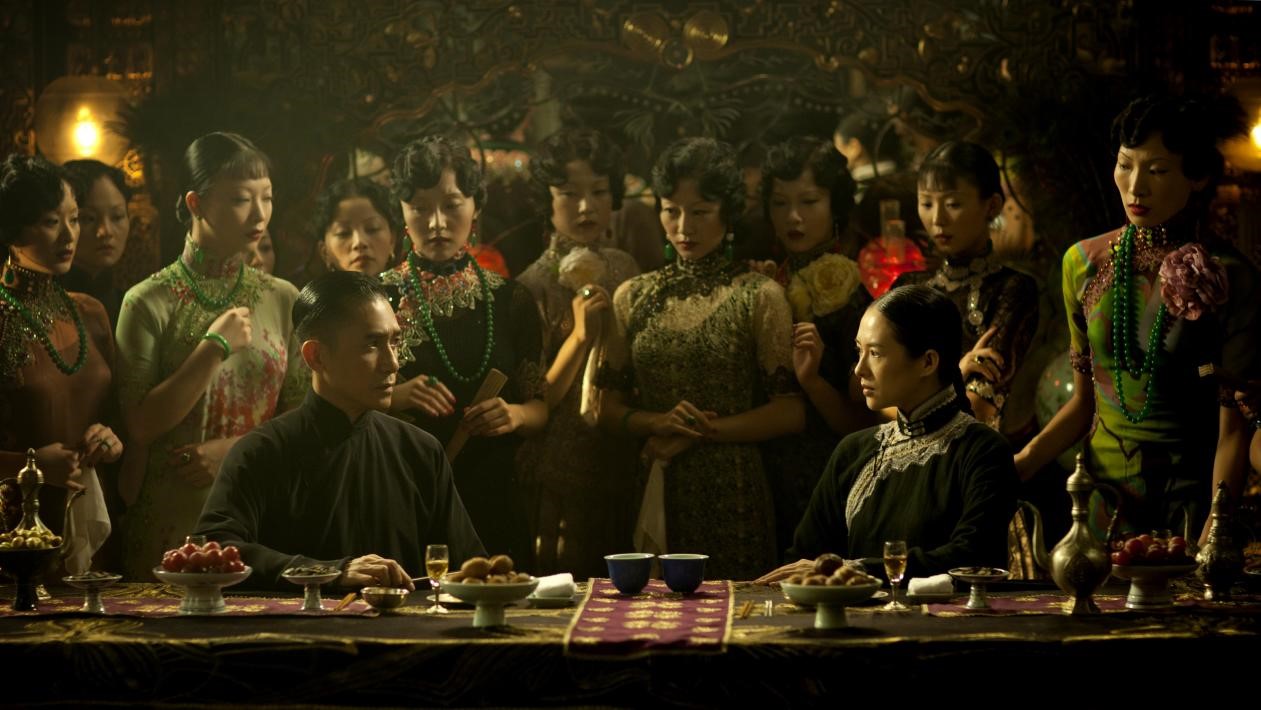
The film's cinematography is exquisite. The beauty of many scenes floats off the screen.
Once the essence of "miracle" is clearly understood, many legendary jokes are nothing more than a unique part of Director Wang's production.
For example, it is often said that he didn’t have a script when he was filming, and he thought of where to shoot. Most of the time, it was a few pages of script written by hand the night before the filming. It's not clear where in the film, or even if it will stay in the end.
This kind of story is certainly true, but don't be too superstitious about the magical part. The principle is still that the top chef finds a lot of rare ingredients to make soup, and when the soup comes out, the ingredients for the soup are thrown away. After all, the final soup is the main flavor, not the raw material. As far as the process of making a movie is concerned, there are always far more shots thrown away on the editing table than what the audience sees on the screen in the end. Director Wong Kar Wai just sounds more chic. He often keeps shooting and experimenting on the set, throwing away while shooting, in order to keep the shots with the best artistic effect. Although the production process sounds extravagant, the confidence is still because there is a lot of production funds to consume.
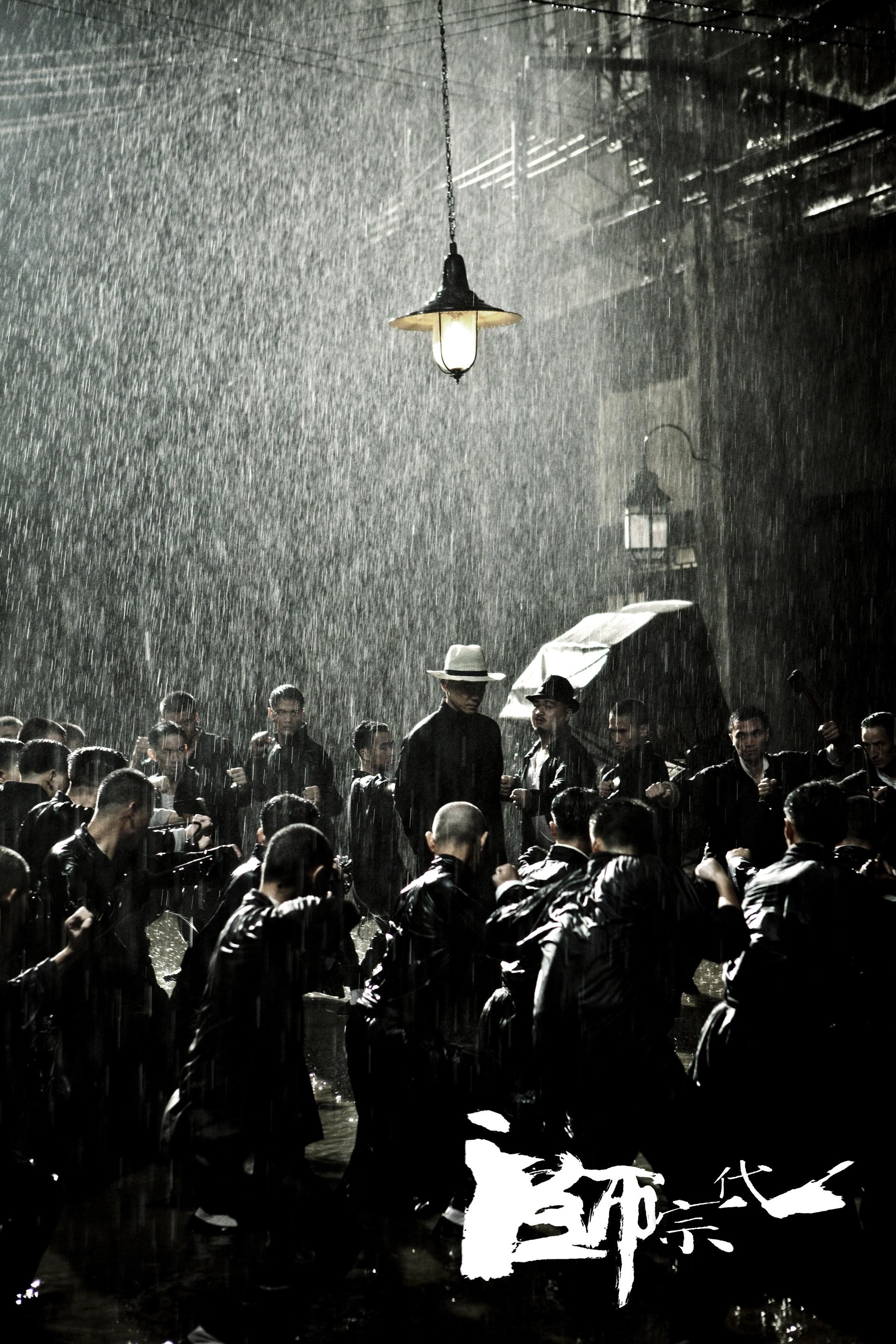
The rain scene at the beginning of the film took at least ten days to shoot. Not only depends on the actors, but also whether the raindrops fall beautifully can be improved.
In the future, it is impossible to predict whether Director Wang will continue to have such a large amount of money-burning shooting opportunities. But "The Grandmaster" is probably the most prosperous era of the mainland Chinese film market, an unprecedented and extremely willful attempt. It's just that the investment pressure behind it made the film's production process continue to be postponed, and it had to be released in a hurry during the Spring Festival of 2013--January 8, 2013 to be precise. In terms of quality, the premiere film at that time was actually not yet completed, and it was only about 70% of the progress. Afterwards, with the completion of the editing of the "American version", the various details and artistic quality of the film have reached a basically satisfactory level. Therefore, it is basically similar to the "US version", and on January 8, 2015, the "3D version" of "The Grandmaster" was released in domestic theaters, which can be regarded as the completion of this film.
For the film industry, the promotion of a film does not tell all these truths. For the audience, the movies of "Wong Kar Wai" are specious, and they can be roughly understood, but they are not very understandable movies. So there seems to be no big difference between the hazyness of 70% completion and the hazyness of 100% completion. In the end it was all the same.
These anecdotes and processes are actually really affecting the artistic quality of the film. "The Grandmaster" is certainly not Director Wang's best film, but under the premise of "burning a lot of money", it still retains a lot of his artistic characteristics. It's a pity that the film, like Director Wang's film works in the past 20 years, has a somewhat anticlimactic feeling. It exposed the problem that the idea was too complicated, but the thread was weak in the end. There was a sense of sight that threw out many gold and silver threads, but it turned into a mess.
Of course, no matter how chaotic Wong Kar Wai's filming is, the production costs are still spent. In terms of art, he is still Director Wang, the actors are all big stars with outstanding standards, and the staff are also the top production team. These objective factors all ensure the basic quality of the film, which still has a much higher artistic value than most films on the market.
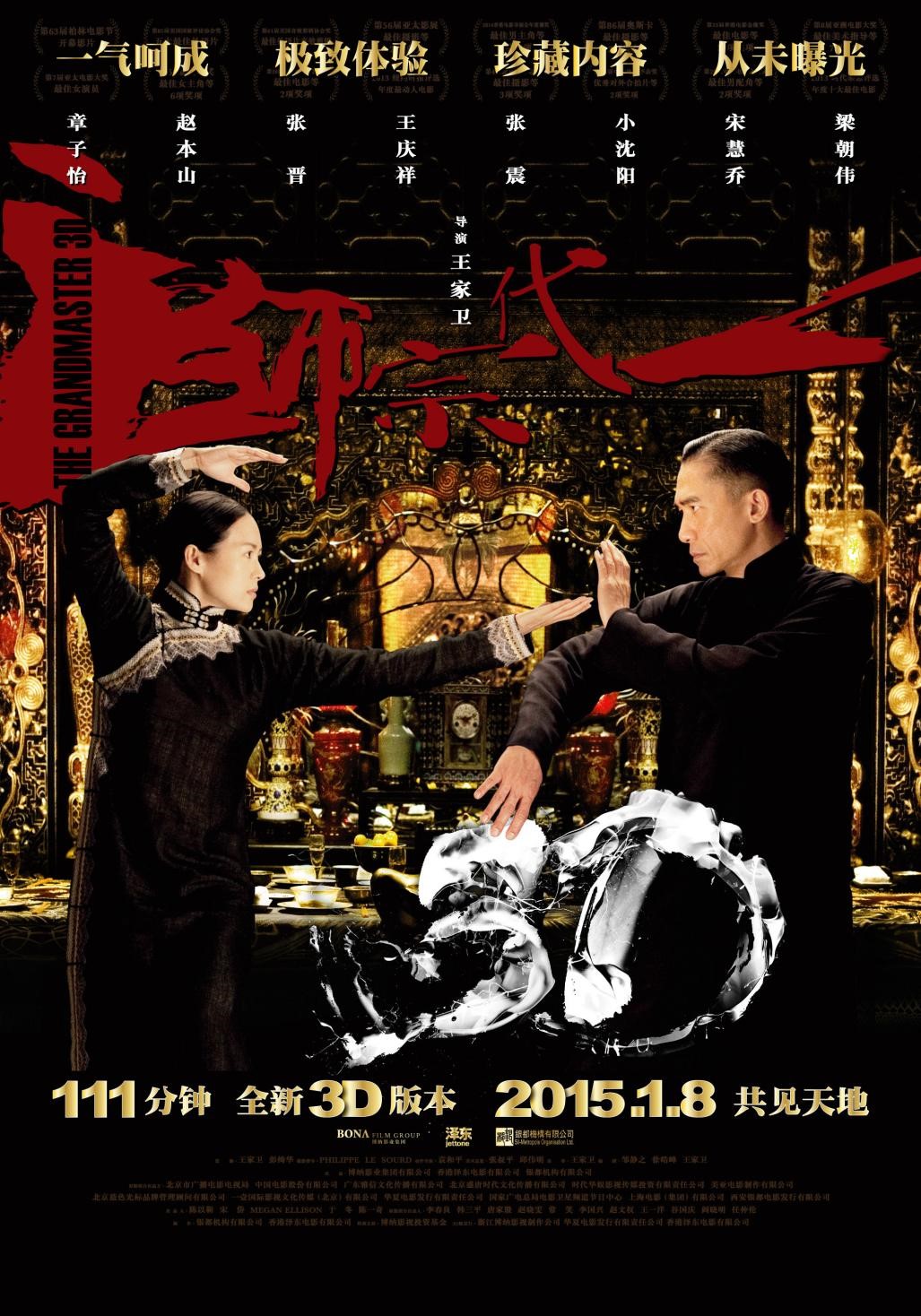
In 2015, the 3D version was re-released. With sufficient time to prepare, even the poster design was gorgeous.
After talking so much about Lala Zaza, I can finally talk about what "The Grandmaster" is filming.
Ten years ago, as the "Ip Man" series and martial arts films received renewed attention in the market, Director Wang also joined in the fun and made this film based on "Wing Chun Ip Man". But from the bottom of the heart, the finished film is still the story that Director Wang wanted to shoot. This "new wine in an old bottle" action is the same as he did almost 30 years ago when he filmed "Evil and Poison" (1994). Back then, when martial arts and kung fu movies were booming in the Hong Kong market, I thought that Director Wang had gathered big stars such as Leslie Cheung, Brigitte Lin, and Tony Leung, and he was going to make a pure Jin Yong style kung fu movie. In the end, it was an even more incomprehensible art film than his previous work. In this sense, "The Great Master" seems to be friendlier than "Evil and West Poison", making the audience feel as if they can understand it. In fact, it is still difficult to understand in the bones.
From the perspective of conception, "Master Ip Man", as a prototype character in reality, is famous for teaching Kung Fu superstar "Bruce Lee", but it is hard to say that he has any legends in his life, more just "one tea and one meal" "The "martial arts master" whose life is simple. Kung Fu movies such as "Ip Man", through a lot of "acting" creations, let the protagonist "Ip Man" continue to attack the Japanese invaders and Americans, unite the people of the country in the martial arts arena to defend against foreign enemies, and demonstrate national self-confidence. "I want to play ten", and there is no decent legendary score, it can only be regarded as "relatively able to play".
From this point of view, "The Story of Ip Man" is obviously not special enough. For Wang Dao, who has always pursued a "special style" in art, the life of "Ip Man" can only be regarded as thin. The pursuit of martial arts combined with the turmoil of the times, trying to find a foothold for "traditional martial arts" in modern society.
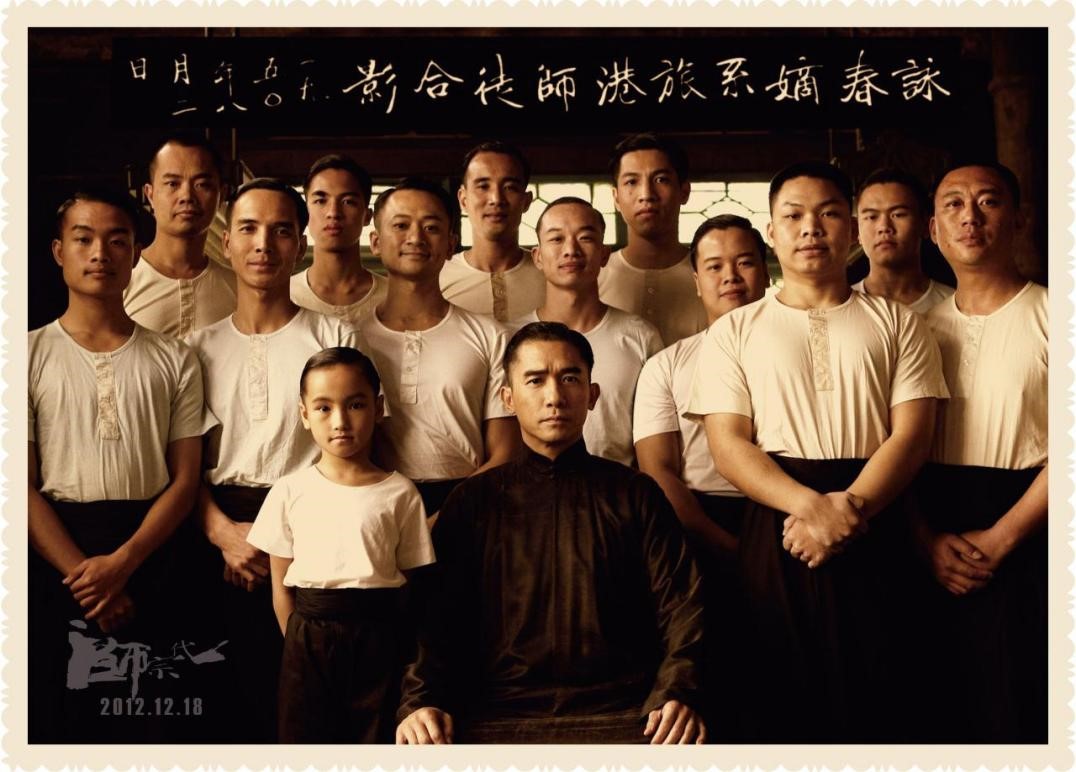
The real story of Ip Man, this photo is enough to tell, it is not so legendary at all.
If "The Great Master" is regarded as the martial arts sentient beings like "Evil and West Poison", then it can be said to be "the last martial arts masters", looking for their own ways to live and live in the era. "Ip Man" is just a commercial protagonist, and a generation of master Gong Baosen, as a predecessor who hopes to carry forward "Chinese martial arts", has his own grand ideals, but finally died of depression due to changes in the times; his daughter Gong Er, As a "chivalrous girl" who has devoted her whole life to martial arts to avenge her father, she has chosen a difficult path of "seeking the way of martial arts"; and amidst the waves of the times, one can also see the martial arts scum "Ma San" who has taken refuge in the Japanese , or the secret agent "One Line Sky" who uses killing skills to serve the military assassination. These martial arts masters with different abilities have chosen different paths and camps. Except for Ip Man, most of the other characters can be understood as typical characters representing different social orientations. Of course, their respective martial arts archetypes can also be vaguely found in history.
This kind of high-level film concept is obviously more in-depth than ordinary commercial martial arts films, and it is very suitable for telling stories to investors and actors. It's a pity that judging from the finished film, I still want to say too much, but I can explain too little. The story lacks a unified string, and does not knead all the elements together organically. So in the end, the whole film was scattered into some memoirs about "Ip Man"'s life, a "Gong Er Zhuan", and the legendary actor Zhang Zhen, who practiced hard to play "One Line Sky", and became the national martial arts champion of Bajiquan. He stayed in "The Grandmaster" but there were only a few scenes left, and he didn't even have the chance to play opposite the lead actor.
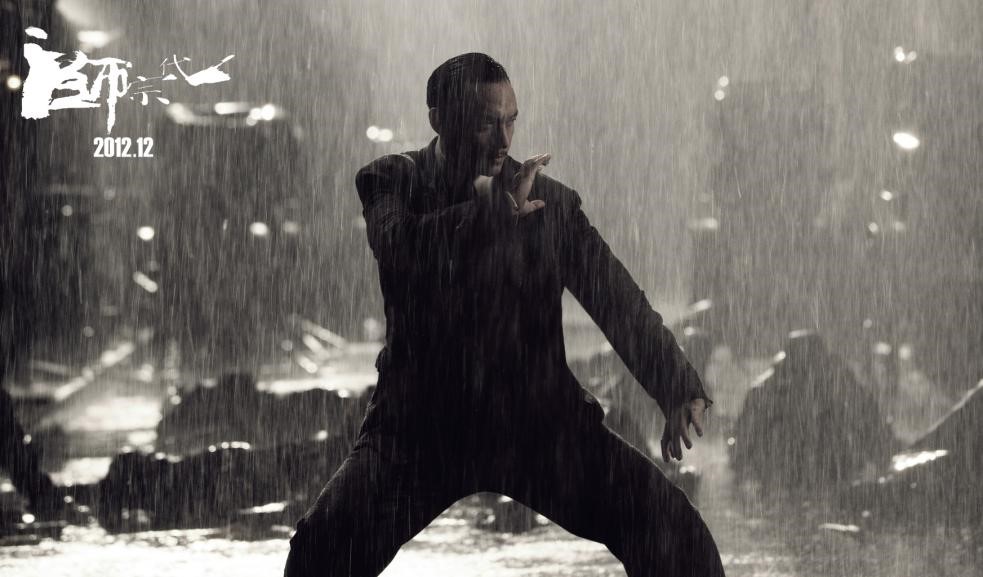
Actor Zhang Zhen did not have a few scenes left in "The Grandmaster", but he has gained a reputation for being very dedicated. Wong Kar Wai is good at using big star actors, following him in filming, he can always reap different rewards in the end.
These are actually flaws in the work of the director and screenwriter. They are problems that are too big to support in the end. In effect, it turned into one after another isolated "scene" in the film that made people watch abruptly, lack of connection. As for the "American version" with a higher degree of completion, it tries to solve this problem by adjusting the order of editing and rewriting some lines in the series of some scenes, so it looks clearer than the first version with 70% completion, even Compared with the first edition, more than ten minutes of scattered dramas that have no place to be placed have been deleted overall, which makes the theme more concise. Of course, the old problems of "Ip Man" in the first half and "Gong Er" in the second half still cannot be properly resolved.
A major contradiction in Wong Kar Wai's art is that even though the film as a whole is scattered, "every scene" is still solid and good-looking. Exquisite and bright and dark photography, luxurious art and scenery, chewy and full of meaning lines, and fighting scenes with novel action design, all make people feel bright.
For example, lines such as "If you never forget, there must be echoes", such as the peculiar "Breaking Cake" martial arts contest, are full of novelty. Commendable, for example, Zhao Benshan also specially left special character shapes and characteristics in the few scene performances similar to guest appearances. The phrase "Wear as big a butt as you want" is especially in line with the down-to-earth feeling of a Northeast martial arts master, and also retains the personal charm of actor Zhao Benshan. His cigarette lighting contest for Tony Leung is similar to the cigarette lighting duel between Shangguan Jinhong and Tianji old man in Gu Long's novel "Xiao Li Fei Dao". Although the audience can't understand it, they can feel the secret rivalry between the two martial arts masters. energy. These seemingly careless handlings reflect director Wong Kar-wai's extraordinary artistic skills, and in many cases, they look more effortless and unrestrained than those scenes that were shot with great effort, such as the overly showy "Fight in the Rain" at the beginning .
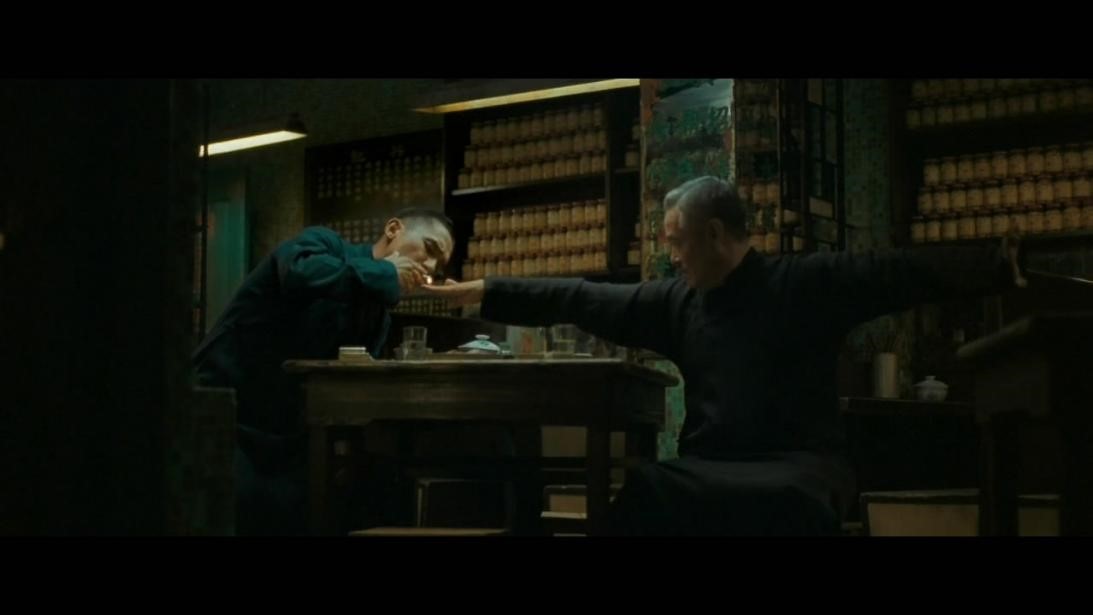
What was this scene about? It seems difficult to say one or two sentences. In short, two martial arts masters, one on the offensive and the other on the defensive, don't need to fight each other, and they both know that the other party is not ordinary. This is the real martial arts contest.
The action design of kung fu movies, combined with the concise lines of different images of martial arts masters, and the visual beauty of the film created by fine art photography, "The Grand Master" is a top-notch film work, which is worth watching patiently over and over again.
However, it is a pity that it is still the story of the film. The general idea of the theme is scattered, but when it comes to the specific plot details, it becomes the "fighting" of the characters in the film. The contest is quite fierce. At least before the action, it is generally clear what kind of reputation and dignity each side is betting on. . But those "literary dramas" other than hands-on, are presented in a way that is hard to describe. Whether it is the martial arts master Gong Baosen's sustenance for Ye Wen to inherit martial arts, or Gong Er's vague affection for Ye Wen's "I have you in my heart", it seems wishful thinking, which belongs to the characters' self-talk and plot. The foreshadowing and story rationality are obviously insufficient.
This is about Wang Dao's old problem for nearly 30 years. After "Days of Being Wild", Wang Dao's group portraits of the protagonists all have some common problems of literary youths, who often talk too much to themselves, and are unable to extricate themselves from the unrequited love complex of "love and not love". A secret love diary of self-admiration. For love sketches like "In the Mood for Love" or "Happy Together", the way the protagonists behave like this is also in line with the overall love tone of the film. It's just that for such a grand idea as "The Grandmaster", the film still has to end with the regret of "unable to love" between the male and female protagonists, which is obviously a bit petty. This has ruined the painstaking shaping of the characters before the film, which seems too literary and lacking in strength.
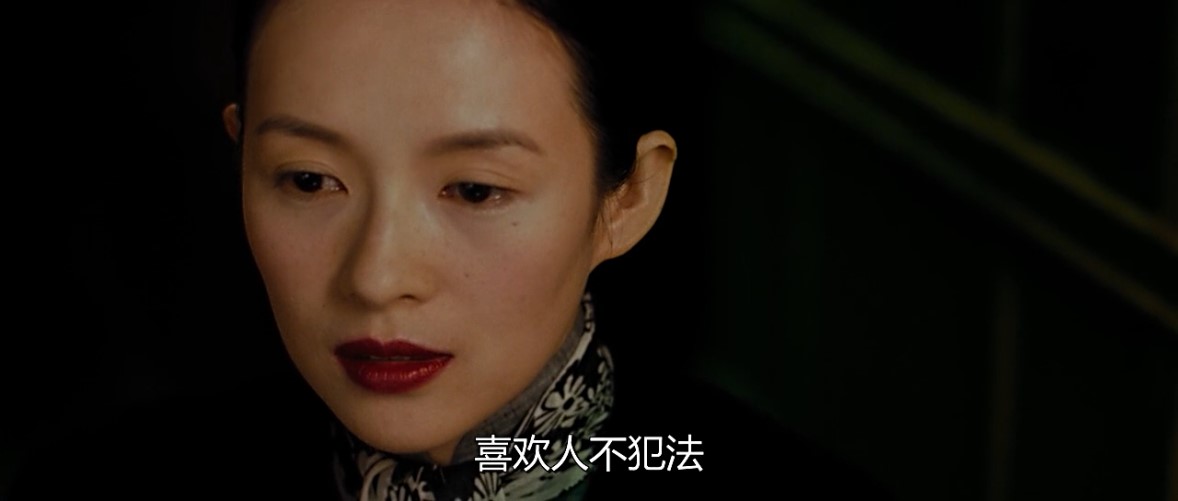
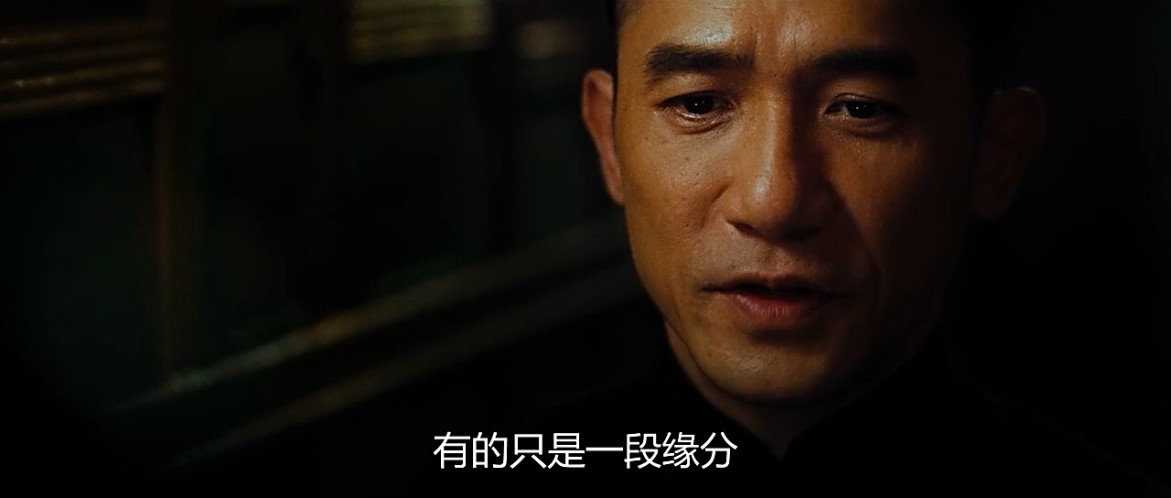
The story of Gong Er and the story of Ip Man, if you look at the different life experiences of two martial arts masters, you can understand that one is the old road of revenge for the people of the rivers and lakes, and the other is the new road of hiding in the city, which reflect each other. This is also the concept of the times that "The Grandmaster" really wants to express. However, the film finally ended on a ticket sentiment of "In the Mood for Love", which is a bit pity.
"The Great Master", like many director Wang's later works, has obvious advantages and disadvantages. It’s just that his films seem to be very profound, and ordinary audiences dare not point to a certain place and say “this is an obvious failure”, so it becomes more and more impossible to evaluate, and on the contrary, it becomes more and more mythologized for Director Wang’s artistic achievements .
In fact, "The Grandmaster" may not be that complicated, just like "Avatar" may not be popular to the end. They are all works that have spent a lot of time, thought and money. With a lot of investment, the effect is naturally different. It is difficult for others to imitate, but it does not become a perfect work of art because of this. Looking at it now, it is still interesting, because ten years later, the global film and television production industry will no longer be able to support these individual works with huge investment. The best golden age of film art, starting from the late 1990s, has been quietly drifting away from us.

